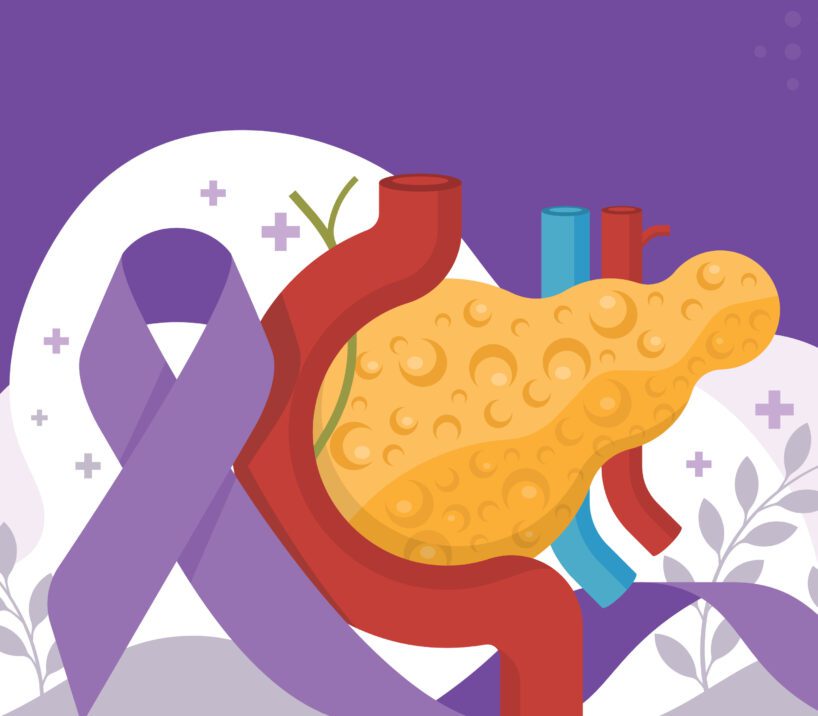November 16, 2023
Pancreatic Cancer Awareness Month
November is Pancreatic Cancer Awareness Month, with World Pancreatic Cancer Day being recognized on November 16.

Pancreatic cancer’s development and spread, its increasing rate of diagnosis and new research make pancreatic cancer a fascinating area of study and an important disease to explore.
This month, we reached out to our partners at Atrium Health to learn more about pancreatic cancer and the advances in research and treatment of the disease.
About Pancreatic Cancer
The pancreas is an organ near the small intestine and bile ducts that is primarily known for secreting hormones that help regulate blood sugar and help with digestion. The most important hormone that it makes is insulin, which is abnormally regulated in diabetes, which can often be the first sign of pancreatic cancer.
The etiology (cause or set of causes) of pancreatic cancer is usually unknown, but we know that an unhealthy lifestyle can certainly increase risk. There are also some inherited mutations that are responsible for up to 10% of cases.
While pancreatic cancer only accounts for 3% of all cancers, it makes up 7% of all cancer deaths.
Pancreatic cancer is often difficult to diagnose because there are no reliable screening tests, and the disease often does not have obvious symptoms until it has spread to other parts of the body. Once it spreads and becomes inoperable, it can no longer be cured.
Unfortunately, more than half of those diagnosed with pancreatic cancer are diagnosed after the cancer has spread, and the overall 5-year survival rate is only 12%.
The good news is that this survival rate has more than doubled over the past 20 years with advances in therapy and supportive care.
Advances in Research and Care
It’s not all doom and gloom! People are living longer and with a better quality of life with the disease.
Recent developments in understanding the genetic makeup of each individual’s cancer have resulted in more tailored treatments that have a higher chance of working.
Evolving surgical techniques continue to push the boundaries of what is operable, giving more people a chance for a cure if their cancer has not spread. Everyone with this diagnosis is now screened for genetic abnormalities that can lead to potentially more treatment options and identify families at higher risk.
Medical professionals are learning how to help people deal with the side effects of treatment and palliate the secondary effects of the cancer, allowing those with the diagnosis to enjoy the time they have with their loved ones.
While chemotherapy remains a vital component of treatment for those diagnosed with pancreatic cancer, researchers are investigating “smarter” therapies that have less negative impact on the normal cells of a patient.
Immunotherapy is an important focus of research that aims to harness the body’s own immune system to recognize and fight cancer cells.
Targeted therapy is used to home in on a specific abnormal gene with laser focus, as opposed to the broad effects of chemotherapy. Altered RAS genes – genes that impact cell signaling and growth – are found in more than 90% of pancreatic cancers, so researchers are currently working on treatments that target tumors by zeroing in on those genes.
As medical professionals enrich their understanding of the molecular origins of this deadly disease, more doors will open for treatment strategies.
“It’s a very serious cancer. It’s something that is life-threatening for a lot of people, but it’s not necessarily a death sentence. It’s something that we have treatments for, and our treatments are only getting better.” –Dr. Robert McWilliams of the Mayo Clinic
Thank you to our partners at Atrium Health for their contributions to this content.
Learn more about pancreatic cancer resources at Atrium Health.